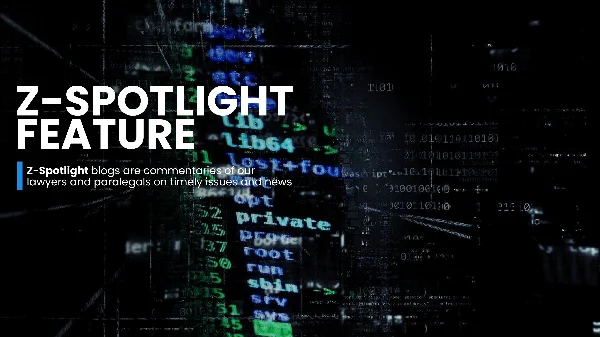
Image by Pete Linforth from Pixabay
When I was browsing the vast space of the internet for the latest news and issues, online / cybercrimes never fail to appear in the search results. In fact, this topic appeared so many times that it got me thinking, is it really that rampant now?
Well, with the rise of digital integration in everyday life—such as online banking, e-commerce, social media, and cloud storage, I wouldn’t think twice. Cyberspace has emerged as an important arena for technological progress and illicit behavior.
The Existing Environment
Cybercrimes in the Philippines have become increasingly common and intricate. Recent statistics [1] show an increase in occurrences like online fraud, identity theft, phishing schemes, ransomware assaults, and cyberbullying. The internet's anonymity can facilitate the committing of such offenses without prompt identification.
Despite initiatives to enhance cybersecurity awareness, the Philippine Statistics Authority indicates that the count of Filipinos impacted by cyber incidents—such as text scams, phishing, and hacking—has increased twofold in 2024. Initial data from the National ICT Household Survey indicates that 62.5%, or more than 50.9 million, of the nation's ICT users faced technology-related threats last year, an increase from 31.1% in 2019.[2]
The rise in digital activities due to the pandemic created fresh avenues for cybercrime. This encompassed fraudulent websites, scams related to investments, situations with unapproved distribution of explicit content, and occurrences of defamation online. These developments have also affected government organizations.[3]
Our office has managed multiple cybercrime incidents. One instance included accusations of online defamation when unfavorable comments were shared on Facebook, allegedly affecting a person's reputation. These posts included personal attacks, purported threats to disclose false information, inappropriate direct messages, and explicit images meant to provoke upset.
Another case involved possible violations of the Anti-Photo and Video Voyeurism Act, with sensitive videos being distributed online without the subject’s knowledge or permission. Such cases illustrate the potential impact of cyber harassment and online defamation on individuals’ dignity and emotional well-being.
Factors Contributing to Online Crime
Multiple factors are associated with the increasing rate of online crimes:
- Many users may be unaware of how to secure their data or identify digital threats.
Individuals and small businesses might not have sufficient tools or expertise to protect
their systems. - Criminals often exploit the global nature of the internet, complicating investigations and
legal proceedings. - Agencies may find it difficult to keep pace with evolving cybercrime methods.
Legal Framework and Remedies
The primary regulation addressing cybercrimes in the Philippines is the Cybercrime Prevention Act of 2012 (RA 10175). This legislation covers offenses like illegal access, data interference, cybersex, online libel, and identity theft, and includes provisions for preserving computer data and collecting traffic data during investigations.
Other relevant statutes include:
- Data Privacy Act of 2012 (RA 10173): Protects personal data of individuals and entities.
- Anti-Photo and Video Voyeurism Act (RA 9995): Prohibits unauthorized distribution of
private video and photo content. - E-Commerce Act (RA 8792): Validates electronic documents and transactions legally.
Although these laws provide accountability measures, enforcement can be challenging due to limited resources, technical constraints, and jurisdictional issues in dealing with international cybercrimes. Hence, personal accountability is important. Follow these tips to secure your
cyberworld:
Conclusion
Addressing online crime in the Philippines requires coordinated efforts across the legal, technological, and educational sectors. Through comprehensive legislation, public awareness, and updated institutional practices, it is possible to create safer digital environments for all users.
Here are a few ways on how you can be secured on and behind the screen:
- Use unique and strong passwords - Make sure that you utilize passwords which are hard to determine. You can try mixing letters, numbers and symbols to heighten your password strength.
- Limit your personal information online - Do not post or publicize all information about yourself or your family. Oversharing online is a way for scammers to trace a person and approach them to perform criminal acts.
- Be cautious of phishing attempts - If you receive suspicious links or attachments, do not open them. Always verify first the sender’s information before accessing any links or attachments.
- Understand your rights - Learn the basic know-hows on the cybercrime laws in the Philippines. Know what constitutes as a violation or simply how to report cyber abuse or crimes when you encounter one. This helps lessen the number of victims that fall prey to these abusive online scammers.
For more information or if you wish to request for a lecture on how to properly protect your information and safeguard your privacy online, please do not hesitate to reach out to us through our Facebook Page or our contact information at (63) 936 979 2296 or (63) 908 867 6601.
[1] Chan, Katherine K. BusinessWorld. “Cybercrime victims in PHL double in 2024.” Retrieved from https://www.bworldonline.com/the-nation/2025/07/21/686596/cybercrime-victims-in-phl-double-in-2024/
[2] Chan, Katherine K. BusinessWorld. “Cybercrime victims in PHL double in 2024.” Retrieved from https://www.bworldonline.com/the-nation/2025/07/21/686596/cybercrime-victims-in-phl-double-in-2024/
[3] Philippine Statistics Authority. “Beware of National ID Scams.” Retrieved from https://rsso12.psa.gov.ph/content/beware-national-id-scams https://www.titanfile.com/blog/cyber-security-tips-best-practices/
